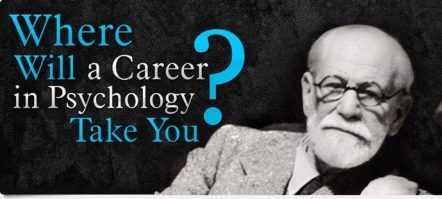Just how tough is it to get into clinical psychology PhD programs? Well it ain’t a walk in the park, that’s for sure. High GPAs and GRE scores are no longer a guarantee in the extremely competitive admissions race. But there’s still a way to earn that coveted doctorate in clinical psychology.
The Challenge Of Admission
How do you increase your chances at being accepted into the clinicial psychology PhD programs you’re aiming for? First, be very sure that you intend to go into clinical practice. The competition is tougher in this field, both when you begin to work and just to get into a program. Second, understand that in applying for admission, most of the time schools expect you to complete the doctoral programs, although there are some that have terminal masters in clinical psychology degrees.
All admission requirements include a bachelor’s degree. It doesn’t necessarily have to be in psychology, but that would be a plus. That’s because you can use the time to volunteer as research assistant in psychology departments to gain experience in the field. Second, working with professors will be an opportunity to seek their help through a recommendation letter for when you need it.
Second, if you go for a bachelors degree in psychology, then you can engage in research yourself that will build your experience and credibility as a serious student. This will also be valuable when applying for admission. More importantly, when you design research of your own during undergrad year, you may be given the chance to publish. And publication, it seems, is something universities look for.
You need three letters of recommendation. These are vital and can help swing your chances at acceptance. But it works best if the person you seek it from knows you very well: the kind of work you do, how sincere you are about the profession, your study and work ethics, and even your personality. The more they know you, beyond just being a student, the better they can help you.
Finally, if you really want to get into clinical psychology PhD programs, be realistic when sending out applications for admission. Yes, apply to top programs in well-known universities in California or Washington DC. But do consider some other institutions just to have a fall-back. Often, applicants become all too confident about getting into extremely competitive programs only to be met with disappointment. By then, it was too late to get into other programs because they never completed requirements when they needed to. Remember there are excellent programs in Colorado and Chicago, too.
And don’t think that clinical psychology PhD programs online will be easier to get into. They can be very tough, too. So decide what the real goal is: to get into a prestigious program or to get into the program that will allow you to train and become a professional clinician. Don’t make the mistake of applying for other clinical psychology graduate programs just to be accepted and then shift to what you really want.
What The Future Holds
Once you’ve completed any of the clinical psychology PhD programs and been awarded a doctorate, then your professional career begins. Work can be in universities, at hospitals or mental health centers. Federal and state government agencies have demand for these professionals, whether in NYC or Texas. And with a doctorate, the clinical psychology salary is far greater than if you just held a masters in psychology degree. The thing is, you can only become a licensed clinical psychologist if you’ve earned a PhD or more commonly, PsyD (Doctor of Psychology) for professionals engaged in direct human services.
It pays to do your homework when competing to get into clinical psychology PhD programs.
Below find more interesting articles about the different programs, schools, rankings and salaries.


